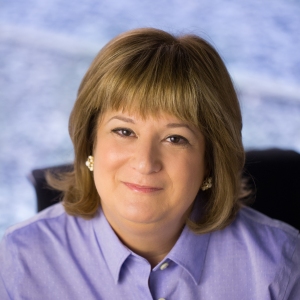Interview With Dr. Ellen Cohn of the University of Pittsburgh

Ellen Cohn is a professor in the Department of Communication Science and Disorders and an ASHA Fellow. She teaches courses in cleft palate/craniofacial disorders, professional issues, culture, diversity and healthcare, and rhetoric and communication. Cohn has co-authored books on: telerehabilitation, communication science and disorders (a casebook), videofluoroscopy/cleft palate; diversity in higher education; Tele-AAC, and communication, and co-authored two programs at the University of Pittsburgh’s School of Law: a Certificate Program in Disability Law, and the first MSL with a Concentration in Disability Law,. Cohn is a past investigator for a Department of Education – National Institute on Disability and Rehabilitation Research, Rehabilitation Engineering Research Center on Telerehabilitation.
Note: You should consult with your doctor or speech pathologist for recommendations on treatment. The views and opinions expressed in this article are those of Dr. Cohn and do not necessarily reflect the official policy or position of SpeechPathologyMastersPrograms.com
How did you become interested in telerehabilitation?
Total serendipity. My school at the University of Pittsburgh was applying for a large multidisciplinary grant on telerehabilitation. The principal investigator, an engineer, asked me to review and edit the huge final document (an all-nighter!) – within 48 hours of submission. That resulted in a role on the grant over 8 years, chiefly to disseminate the findings. Dissemination included efforts to promote the emerging field within the American Telemedicine Association, ASHA, Mid-Atlantic Telehealth Resource Center and to generate scholarly products. This was a natural fit for me, as I love multidisciplinary work, opportunities to engage in transformation, and the generous colleagues in the field of telerehabilitation.
What are the benefits of having telemedicine available for both patients and therapists in the speech pathology field?
Telepractice (the term used by the American Speech-Language-Hearing Association (ASHA)) is relevant to almost any area of practice in speech-language pathology and audiology. It is especially advantageous when clinical expertise is not available locally, and to save the family and patient travel time and costs. Therapists can learn from consultations with experts at a distance. Telepractice also represents a new employment model for clinicians. Across clinical sites, telepractice is increasingly maintaining uninterrupted service delivery and avoiding the economic loss of cancellations (e.g., a family’s car broke down, or, the baby-sitter cancelled, etc.).
Are there specific populations that SLPs treat that especially benefit from this option?
While many studies are showing applicability of telepractice to all populations that SLP’s treat, this body of research is just developing. It is probably most productive to consider what characteristics of individuals within a specific population are most important for successful telepractice or a hybrid approach (i.e., telepractice plus in-person service delivery.) Currently, these judgments are best made on a case-by-case basis, not driven solely by type of population.
What are the challenges to properly implementing telerehabilitation into a practice?
It is a misconception that use of telepractice is as simple as powering up one’s computer, after putting the barking dog in another room. Telepractice privacy and security can be complicated. Practicing across state lines requires an additional license that can be time-consuming and expensive to obtain and then renew. It is important to know how to establish a positive telepresence and physical environment, and how to use web-based materials. There must be procedures in place if connectivity fails, or your client experiences a medical emergency. Anyone embarking in telepractice should receive extensive training (not just 1-2 hours) and relate to an experienced mentor.
What are some of the ethical considerations for this mode of delivery?
Now that the technology is accessible, more and more ethical issues are surfacing. For example, is it ethical to use telepractice to avoid work with a specific population, or to avoid travel to an “undesirable” neighborhood? Is it ethical to offer a contract to a school district that employs a capable SLP staff that results in their lay-offs? How might telepractice vs. in-person practice differ in a school (e.g., potential integration with the school community and curricula)? Will telepractice provide the “best” service delivery model for a specific client? When is it most ethical to refer a client to “in-person” (vs. telepractice) services?
What aspect of your work are you most proud of?
It is true that our efforts “stand on the shoulders” of those who came before us. I have been fortunate to have incredible mentors from many disciplines both as a student and as a working professional. Paying that forward, my interactions with clients, students, and colleagues are the most gratifying part of my work.
Do you have any advice for those entering a speech pathology master’s program?
- Grow your professional network. Consider establishing a LinkedIn page to which you invite your undergraduate faculty members and classmates. Keep in touch. When you move to another city and need employment leads – they will be there for you. It is also fun to “meet-up” at state and national conventions. Your clinical supervisors will be very important sources of recommendations and they will be happy to learn of your achievements. Keep in touch with them as well.
- Join the national National Student Speech Language Hearing Association (NSSLHA) organization. This will provide deep access to the ASHA website, and a discount (if you join ahead of the deadline) for ASHA certification.
- Join your regional and state professional organizations and attend meetings. Association membership will be a plus on your resume, and potentially provide leads for employment.
- Become familiar with state licensure. If you are certain you want to work in a specific state (especially one that is different from that of your graduate program), review that state’s licensure requirements. Do so immediately, to make certain that you will meet the requirements upon graduation. Moreover, be careful not to engage in any activities that might prevent you from obtaining state licensure.
- Attend at least one ASHA convention early in your career. That experience, alongside thousands of SLPs and students, will amplify your sense of excitement about our profession. Plan to attend with your graduate school classmates. Scour the entire exhibit areas and attend the presentations of researchers whose work you have read. Meet student presenters at the poster sessions. Attend the various ceremonies (opening, awards, closing, etc.) Bring along your resume and impress recruiters. Wear comfortable shoes.
- Gain experiences in a wide variety of clinical settings. You might begin your career working in a hospital or other health care setting, and several years later want to work in the schools or vice versa. Your university clinical practicum experiences will be invaluable in affording you future flexibility.
- Grow your resume with certifications or experiences beyond those offered in your master’s program. These will distinguish you from other candidates for Clinical Fellowship positions.
- It is ok not to be “perfect” in academics or clinic, as long as you operate with integrity. Be receptive to feedback, and engage in self-reflection. Ask for help from your faculty member, academic advisor, or clinical advisor. Act fast and do not allow a situation to spiral downward. Work to achieve a deep understanding of the content.
- Maintain work-life balance in graduate school. Schedule “down time” and guard your sleep.
- Be certain you are passionate about this profession! This field is a fantastic choice for persons who want to help others, are strong students, and have a sense of curiosity. If you are not sure this field is the one for you, shadow several SLPs to be certain that you will enjoy clinical practice. In my opinion, you should be “all in” before investing your time and money in training.
Sponsored online speech pathology programs

Online MS: Pursue SLP Certification. Study FT/PT
Speech@Emerson enables you to earn an MS online and pursue SLP certification in as few as 20 mos. Learn the same curriculum as the on-campus program. Study FT or PT.
- Prepares you to pursue certification as an SLP generalist
- In-person clinical placements at faculty-approved partner sites
- As few as 20 months to complete
SPONSORED

Want to Become an SLP? Earn an MS Online at NYU
NYU Steinhardt’s online master of science program in Communicative Sciences and Disorders prepares aspiring speech-language pathologists with a comprehensive professional education.
- Prepares students to pursue SLP licensure
- Accredited by ASHA’s Council on Academic Accreditation
- As few as six terms to complete
- Full-time and part-time plans of study
SPONSORED

Online MS in Speech-Language Pathology from Pepperdine University
Pepperdine University’s online Master of Science in Speech-Language Pathology program combines a robust, innovative curriculum rooted in Christian values with a full-time or part-time option that features online learning, on-campus intensive experiences, and comprehensive clinical field practicums to prepare skilled, compassionate students for careers as speech-language pathologists.
- Full-time (five trimesters) or part-time (eight trimesters) options available.
- No GRE scores required.
- 400+ supervised, clinical learning hours are done at schools/clinics local to students
- Three onsite experiences build a sense of camaraderie and community throughout the program
SPONSORED

